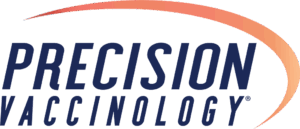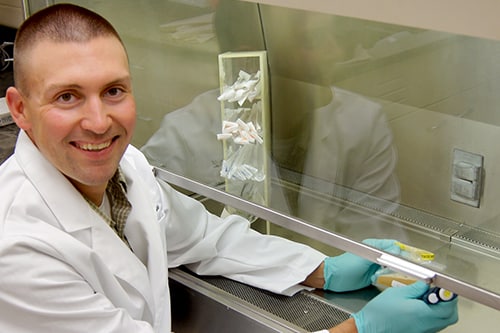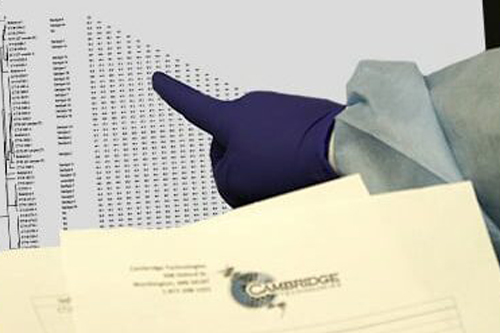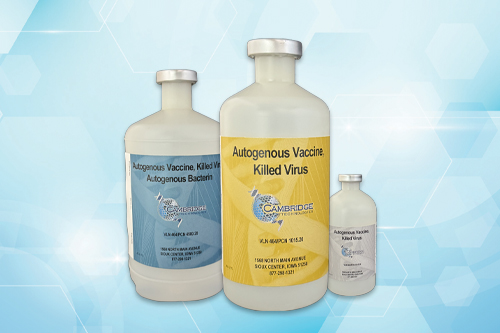Cambridge Technologies uses Precision Vaccinology®, a combination of Next Generation Diagnostics and Quality Custom Manufacturing, to help veterinarians find solutions to herd health problems.
It starts in our full-service diagnostics laboratory, featuring next-generation sequencing, new techniques to identify all viruses, and bacteria in samples from a herd. We use the data to select the best candidates for a herd-specific vaccine which we custom manufacture for the veterinarian with formulations optimized to meet your specific needs. Our goal is to identify emerging pathogens, prevent diseases they may cause, and reduce dependence on antibiotics.
The very nature of autogenous products lends itself to great flexibility in formulation. Just as disease strains and threats evolve and change over time, an autogenous vaccine from Cambridge Technologies can easily be reformulated to continue mirroring the current situation based on ongoing disease monitoring. We also offer the option of a Super concentrate formulation in the face of a sudden break.


(for unknown pathogens)
The Metagenome is essentially all the genetic material that is present in a sample. Metagenomics, an advanced technology, is the process of sequencing this genetic material and identifying all the bacteria and viruses in a sample. We then search for those that may be associated with the disease syndrome, from there we can make further efforts to grow the bacteria or viruses for a custom vaccine.

(for known pathogens)
Multilocus sequence typing or MLST allows us to very precisely compare the genetic diversity of multiple isolates from your farm or other farms in your area. It allows us to keep track of how pathogens are evolving and aids us in selecting the right isolates for an up-to-date vaccine.

Autogenous vaccines from Cambridge Technologies are the most science-driven solution available to veterinarians today. The first step in our Precision Vaccinology® process is an in-depth and detailed diagnostic workup to determine the exact strain(s) of the causative agent(s) affecting the animals.
Building on a comprehensive diagnostic report, our experienced Technical Services veterinarians work with practitioners to build a vaccine that is customized to their specific needs:
• Isolate selection
• Delivery/adjuvant selection
• Label directions
• Dose sizes
• Label color
